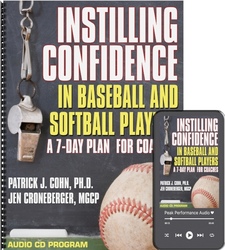How to Set Aside Expectations
Have you ever taken a route other than your passion?
Have you battled with the throwing yips?
Have you done something because it’s what others expected you to do?
Hayden Hurst was a multi-sport standout growing up in Jacksonville, FL. He played numerous sports and was a star at them all. Though, baseball was in a category of its own.
In T-ball, Hurst was asked to move up because he threw so hard and the league wanted to ensure the safety of the other kids.
Hurst was also exceptional in football but played only one year in high school and decided to focus on what everyone thought was coming… an MLB career.
Hurst thought he was “really, really good at baseball, and thought it was the best path to make a lot of money fast.”
Florida State offered him a full ride, but he also learned he could be a late first-round draft pick in the MLB.
Hurst and his father set some pretty strict contract demands, and Hurst was drafted in 2012 with just 45 minutes left before the signing deadline.
The Pirates signed Hurst and in that first season, he caught a case of the yips…
In June of 2013, he faced five batters in his debut and walked them all, with two wild pitches. Little did he know, those would be the first and last pitches of his professional baseball career…
Hurst tried everything and worked with many professionals and types of doctors to overcome the yips.
Scott Elarton, a former MLB pitcher and present pitching coach for the league started working with Hurst.
Elarton commented that they would make what would, “Feel like a lot of progress and then it would get blown out of the water, and each time that happened, it got worse and worse.”
Hurst explains the yips and his experience as being, “A battle inside your head every single day. You second-guess what you’re doing, why you’re doing it, why this is happening to you.”
He also expressed his fear of failure for “letting his family down” and “disappointing them and his self.”
So, Hurst continued to work and work.
The yips are, “So mentally exhausting that it eventually becomes not worth the toll that it takes on you,” Elarton stated.
Through Elarton’s time working with Hurst, he often asked him what he was passionate about, especially after rough days. Every time, Hurst replied, “Football.”
Hurst fought the yips for three years and he eventually decided to put his glove down and follow his passion. That ended up being the best day of his professional baseball career.
Hurst had an extreme case of the yips. They typically don’t last as long as they did for him. However, a factor in his struggle could have been that he seemed to be playing for everyone but himself.
He said, “I always thought of baseball as more of a financial outlet,” it was the smart decision. Nevertheless, Hurst viewed football as a raw passion, something he was good at and really enjoyed. More of the “heart’s decision.”
Hurst went on to play football at South Carolina and in his second year (age 22), he was the first sophomore in Gamecock history to be voted a team captain.
At age 24, Hurst declared for the NFL draft, in which he was a first round pick for the Baltimore Ravens.
Hurst views his MLB experience and the yips as a positive. It made him stronger, more resilient, and led him to his passion.
He followed his heart and has commented:
“I couldn’t be happier… I promise you.”
As an athlete, follow your heart. Make decisions based on your passion and motivation. Let others support you in your pursuit rather than influence you in one direction or another.
These influences may become expectations, and before you know it you’re trying to live up to everyone’s expectations for you and your game.
Expectations can be detrimental as an athlete. Also, wanting to please or not disappoint others can be damaging. The combination of the two could be destructive.
Set Aside Your Expectations
Make sure you let go of any expectations in your sport before you compete, ones you have for yourself and one’s others have for you.
When you do this, you start playing for yourself… something Hurst was not doing.
Furthermore, throw out your need to please others or not disappoint.
You become overly fixated on that and lose respect for yourself. Similarly, you begin to play for the wrong reasons, as did Hurst.
You can work through and overcome the yips and other mental game challenges.
Though, it’s important to be playing for the right reasons. Play for yourself, not others.
It’s YOUR passion that helps you persevere, not anyone else’s.
Related Sports Psychology Articles
- How to Manage High Expectations
- How to Manage Expectations When Batting
- How Rizzo’s Expectations Are Hurting His Numbers
*Subscribe to The Sports Psychology Podcast on iTunes
*Subscribe to The Sports Psychology Podcast on Spotify
Instilling Confidence in Baseball And Softball Players
Confidence, more than any other mental game attribute, is vital for your team’s success. If your players have it and know how to keep it, they maximize their success. Your team cannot reach their full potential unless each player can harness the power of stable and enduring self-confidence–so your team can perform as a confident team.
Your players might possess a ton of physical talent, have great coaching, and train harder or practice more than anyone else in your league, but if they do not have the self-confidence to match, your team can’t utilize this talent.
“Instilling Confidence in Baseball and Softball Players” program consists of one 72-minute audio CD that includes 7 days of confidence-fueling exercises. You’ll also receive a simple-to-follow 74-page coaches’ manual that guides you through the 7 team session you’ll conduct!



